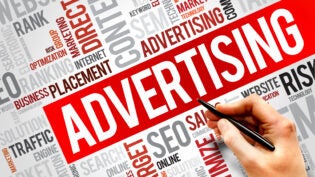
A lot of business owners don’t realize that advertising is regulated by both the federal and state governments. Any advertising that deceives or misleads can be considered unlawful. Even if you didn’t intend for the ad to be misleading, you may still have legal problems – intention doesn’t matter, in the end. In order to stay on the good side of the Federal Trade Commission (FTC), follow these tips to avoid false advertising online.
1. Understand Bait-and-Switch Ads
You may not even realize that one of your ads is considered bait-and-switch because you may not know what the term refers to. Bait-and-switch advertising means that you lure people in with a specific promise or offer, but then change what you actually give the customer once they try to claim the offer. A bait-and-switch ad could certainly results in a false advertising lawsuit.
2. Include Details
Every quality ad will have all the details the consumer needs in order to claim an offer. Conditions to the offer must be stated clearly. If there isn’t enough space in the actual ad to include all relevant information, there should at least be a link to a webpage where that information can be accessed. For instance, in this case study, Europcar, a rental car company, was accused of making false advertising claims by not clarifying what type of insurance coverage renters would get with daily insurance. While the company’s ads offered a certain amount of coverage with daily insurance, that’s not actually what the daily insurance would cover in the event of an accident or mishap.
3. Get Permission When Necessary
Some ads will feature endorsements from other people, such as a celebrity who used the product or service in the past. However, before using a photo of a customer or celebrity, the company must get the necessary permission first. Even using the name of an organization, like the Red Cross, must be approved before the ad is run. If you don’t get permission in advance, you can end up with a person or company suing for false advertising.
4. Fulfill the Offer
If you’re offering a product, it’s necessary to have the right amount of product to fulfill demand. If you don’t have enough supplies or products, you could get in trouble for false advertising. It’s necessary for companies to stock enough inventory in order to meet the reasonable amount of expected demand.
5. Reconsider Using the Word “Free” in Your Ads
You can say the word “free” in advertising, so long as your offer meets certain guidelines. For example, you may offer a free cup of coffee with the purchase of a donut at your bakery. However, if you end up raising the price of your donut in order to compensate for the cost of the “free” coffee, then the coffee isn’t technically free for the consumer. Using the word “free” in the ad would be considered misleading. Instead, you would need to state that you could get two things—the coffee and donut—for a certain price. Or, you could lower the price of the donut so that the coffee is actually free.
6. Rephrase Your Eco-Friendly Advertising Claims
Simply saying that your product or business is eco-friendly or putting a sign on the package to imply that your product is organic may not be clear enough. Instead, the FTC suggests describing your offer as biodegradable or recyclable. The reason for this is because words like “eco-friendly” and “green” have to be qualified in order to be used in advertising. Clarifying how the product is eco-friendly takes care of this and helps you to avoid false advertising.
7. Be Careful When Using “Going Out of Business” Claims
When a business is closing down, it’s common to offer a huge discount on products in order to get rid of as much inventory as possible before the store finally closes its doors. However, many businesses also do this at the end of the year in order to restock new items in January. Don’t ever claim that an end-of-year sale is a going-out-of-business sale. Unless you’re actually closing or moving to a new location, you shouldn’t say that you’re going out of business.
Author: Yazi Jepson is a content writer who has worked with brands and businesses from all over the world. With her background in business management, she has been writing in the area of human resource, organization behavior and self-improvement since 2009. Currently, she writes for Carter Capner Law, a leading law firm who provides legal services in many areas. Connect with Yazi at @yada_dadada.
8145 Views












